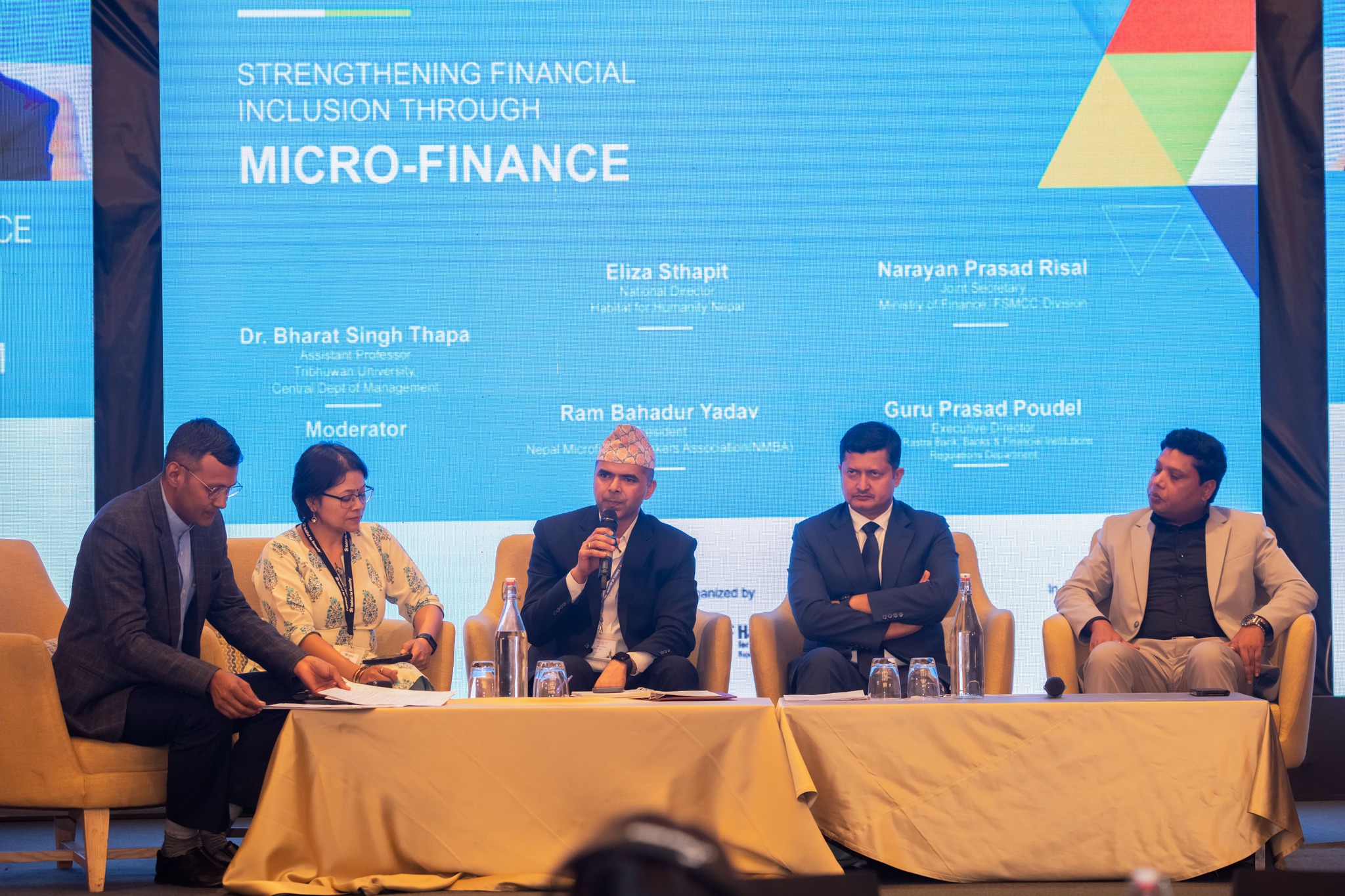National workshop on “Microfinance in Equitable Housing Ecosystem” took place on 25th July in Kathmandu, Nepal. The event was organized as part of the “Financial Inclusion Program for Marginalized Women in Nepal,” a project supported by JOA and implemented by Habitat for Humanity Nepal and Sahara Nepal.
The workshop saw active participation from representatives of the Ministry of Economic Affairs, the Nepal Rastra Bank (NRB), and leaders from various microfinance institutions. Their involvement significantly contributed to the effectiveness and success of the program.

At the program, Narayan Prasad Risal, the Deputy Secretary at the Ministry of Finance, stated that merely expanding the physical reach of banks and financial institutions will not uplift the poor and disadvantaged. “In the past, we focused on increasing the number of financial institutions, but it has now been confirmed that this alone is not enough,” he said. “It has become evident that along with expanding financial access, financial literacy must also be increased.” He also noted that with the expansion of access to banks, financial institutions, microfinance, and cooperatives, ordinary people have taken out more loans than necessary, which has led to problems. Guru Poudel, Executive Director of Nepal Rastra Bank, recently highlighted the emphasis on expanding quality financial access. “In the past, we focused on extending services to every village through financial institutions,” he said. “Now, we are moving forward with a policy of building strong institutions that provide high-quality services.” He noted that an increase in the number of financial institutions has led to greater competition, which has also caused some distortions.
